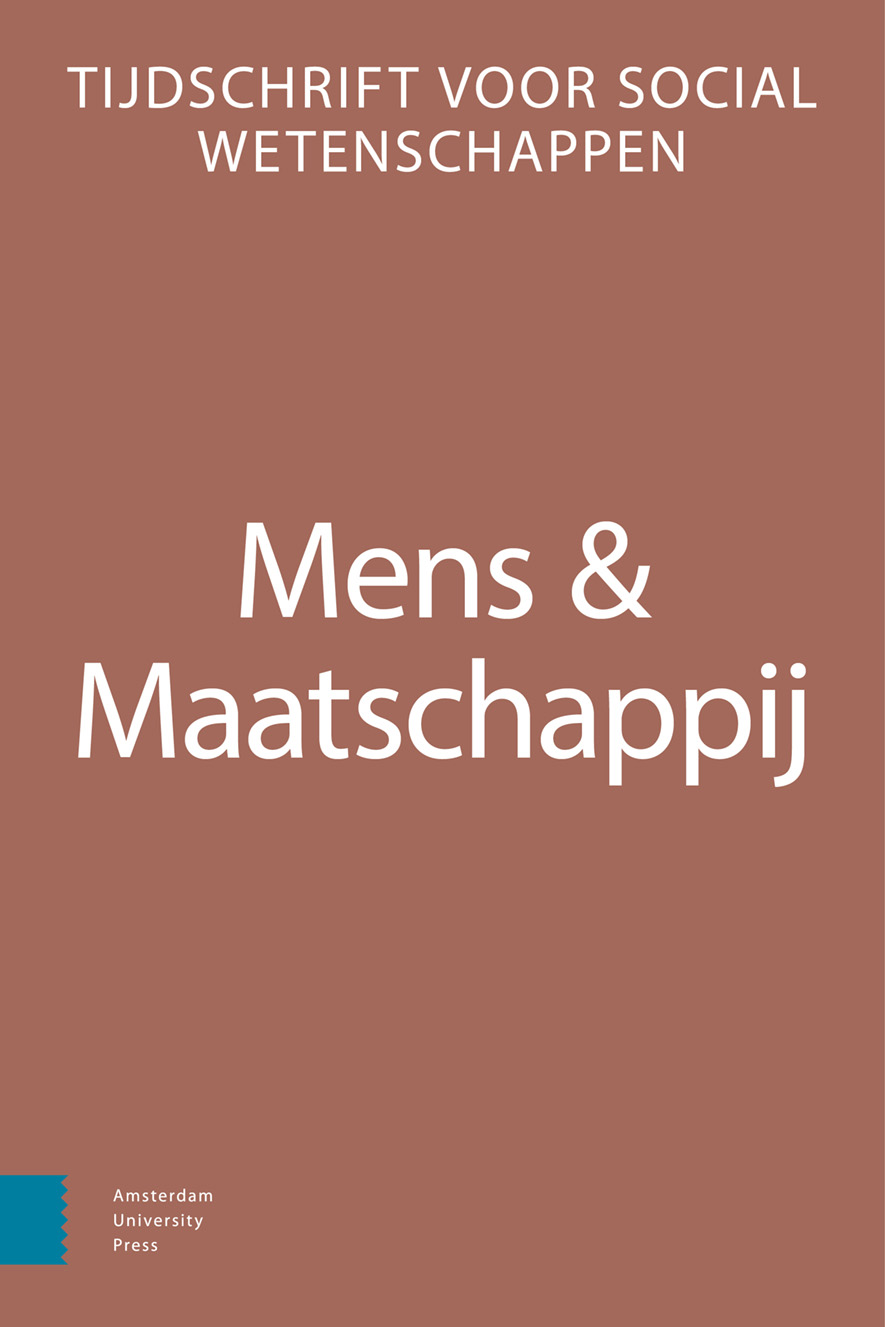- Home
- Publications
- Mens & Maatschappij
- Previous Issues
- Volume 89, Issue 2, 2014
Mens & Maatschappij - Volume 89, Issue 2, 2014
Volume 89, Issue 2, 2014
-
-
Voor- en vroegschoolse voorzieningen, effectief of niet? - De samenhang tussen deelname aan voor- en vroegschoolse voorzieningen en de taal- en rekenprestaties van leerlingen op de korte en langere termijn
More LessAuthors: Inge Bruggers, Geert Driessen & Maurice GesthuizenEarly childhood facilities: effective or ineffective?
Early childhood facilities refer to policies which were designed to improve the language and math performances of children between two and a half and five years old from low-socioeconomic background. This study investigated to what extent early childhood facilities are related to language and math performances in second grade and performance differences between second and fifth grade. We performed longitudinal multilevel analyses on data of the COOL5-18 cohort study, measurement waves 2007/2008 and 2010/2011. Our findings, based on information of 3922 children, show that early childhood facilities are ineffective in creating short- and longer-term improvements in language and math performances. This study also indicates that children participating in center-based programs progress more in language between the second and fifth grade than children who participate in family-oriented programs.
-
-
-
Wat maakt goed onderwijsbestuur? - De gedragsmatige determinanten van taakuitvoering door raden van toezicht in het voortgezet onderwijs
More LessAuthors: Klaas Heemskerk, Eelke Heemskerk & Margrietha WatsWhat determines good educational governance? Behavioral determinants of supervisory boards’ task performance in secondary education.
We investigate how task performance by supervisory boards in secondary education is determined by the social dynamics that play within a board. We show how the controlling task plays out different from the advising task. The internal, behavioral dynamics about task conflict, the use of expertise, effort norms and social cohesion all determine the task performance. The outcomes of a survey study among all secondary schools in the Netherlands serves as the empirical underpinning for a process oriented model of good educational governance. As such we contribute to the emerging literature on behavioral governance. Implications of our study includes that anticipating governance that combines both the controlling and the advising task is best served by diversity of ideas and opinions within a board. Particularly since task conflicts in supervisory boards do not lead to less but rather to more social cohesion.
-
-
-
Een nieuwe levensfase, een nieuwe sport? - Het effect van belangrijke levensgebeurtenissen op starten met sporten
More LessAuthors: Jasper van Houten, Ralf Hermsen, Gerbert Kraaykamp & Agnes EllingA novel life stage, a fresh new sport? Life course transitions and their effect on starting a sport
In this study we establish the effects of major life course events on the odds to start a sport and on the odds to start a competitive sport. To answer our research question we employ retrospective life course data from the Dutch SportersMonitor2010 on 3.540 individuals. Event history analyses show that the chance to start a sport decreases at the moment people start living together or get married, and they have a first child. The chance to start a sport increases when they start working, start living on their own, their children leave the parental home and when they retire. Finally, being active in competitive sport foremost is stimulated by the transition to paid work and leaving the parental home.
-
-
-
Cultuurparticipatie van Turken en Marokkanen in Nederland - Toetsing van een identificatie- en sociale netwerkverklaring
More LessAuthors: Gerbert Kraaykamp, Natascha Notten & Hidde BekhuisCultural participation of Turkish and Moroccans in the Netherlands. Testing an identification and social network explanation
Research on social differentiation in cultural participation traditionally focuses on educational or income inequalities. With respect to ethnic differences in highbrow culture relatively little is known. Employing recent data from the Netherlands Longitudinal Lifecourse Study (2010) we explore to what extent educational differentiation in cultural participation among Turkish and Moroccan minorities is mediated and moderated by aspects of identification and integration. Our study shows that ethnic minority members, who identify themselves more with the Netherlands and participate in a social network with Dutch friend and higher educated friends, are more active in the highbrow cultural realm. A most interesting result is that identification with Dutch society actually moderates the relationship between an individual’s education and cultural participation; higher educated from Turkish and Moroccan decent who identify more with the Netherlands participate more in elitist culture than higher educated low in their identification with the Netherlands.
-
Volumes & issues
Most Read This Month


